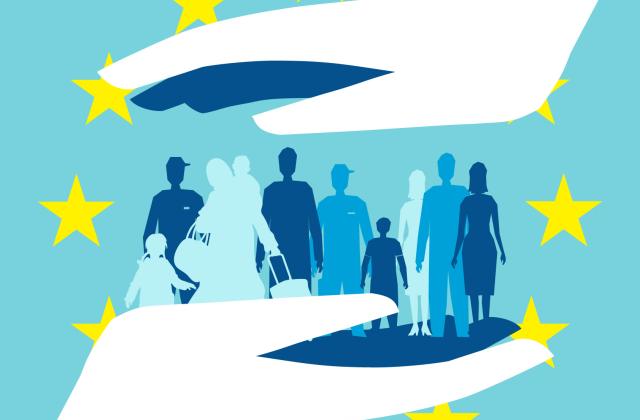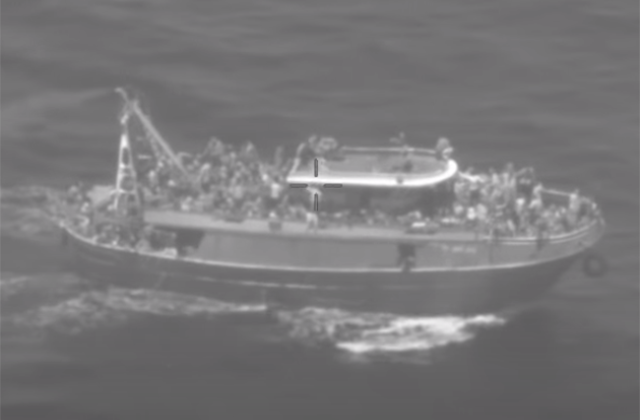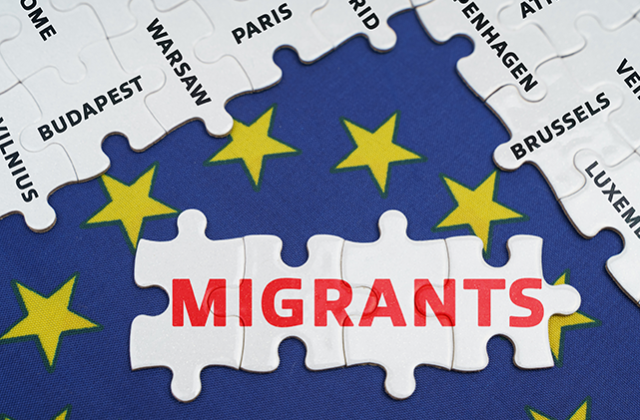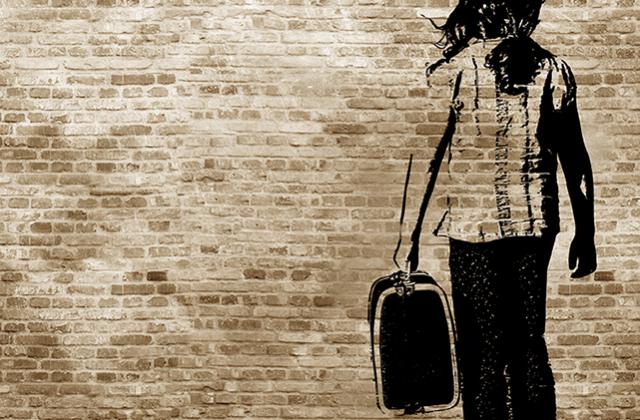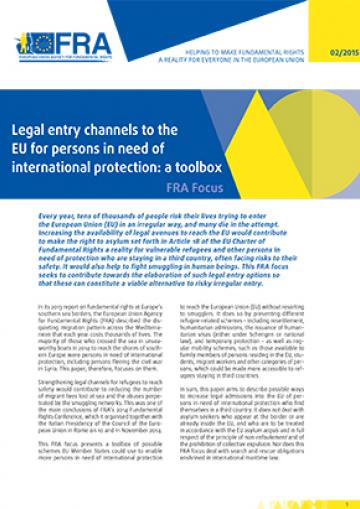
Legal entry channels to the EU for persons in need of international protection: a toolbox
This FRA focus presents a toolbox of possible schemes EU Member States could use to enable more persons in need of international protection to reach the European Union (EU) without resorting to smugglers. It does so by presenting different refugee-specific schemes – including resettlement, humanitarian admissions, the issuance of humanitarian visas (either under Schengen or national law), the lifting of visa requirements and temporary protection – as well as regular mobility schemes, such as those available to family members of persons residing in the EU, students, migrant workers and other categories of persons, which could be made more accessible to refugees staying in third countries.
In sum, this paper aims to describe possible ways to increase legal admissions into the EU of persons in need of international protection who find themselves in a third country. It does not deal with asylum seekers who appear at the border or are already inside the EU, and who are to be treated in accordance with the EU asylum acquis and in full respect of the principle of non-refoulement and of the prohibition of collective expulsion. Nor does this FRA focus deal with search and rescue obligations enshrined in international maritime law.
